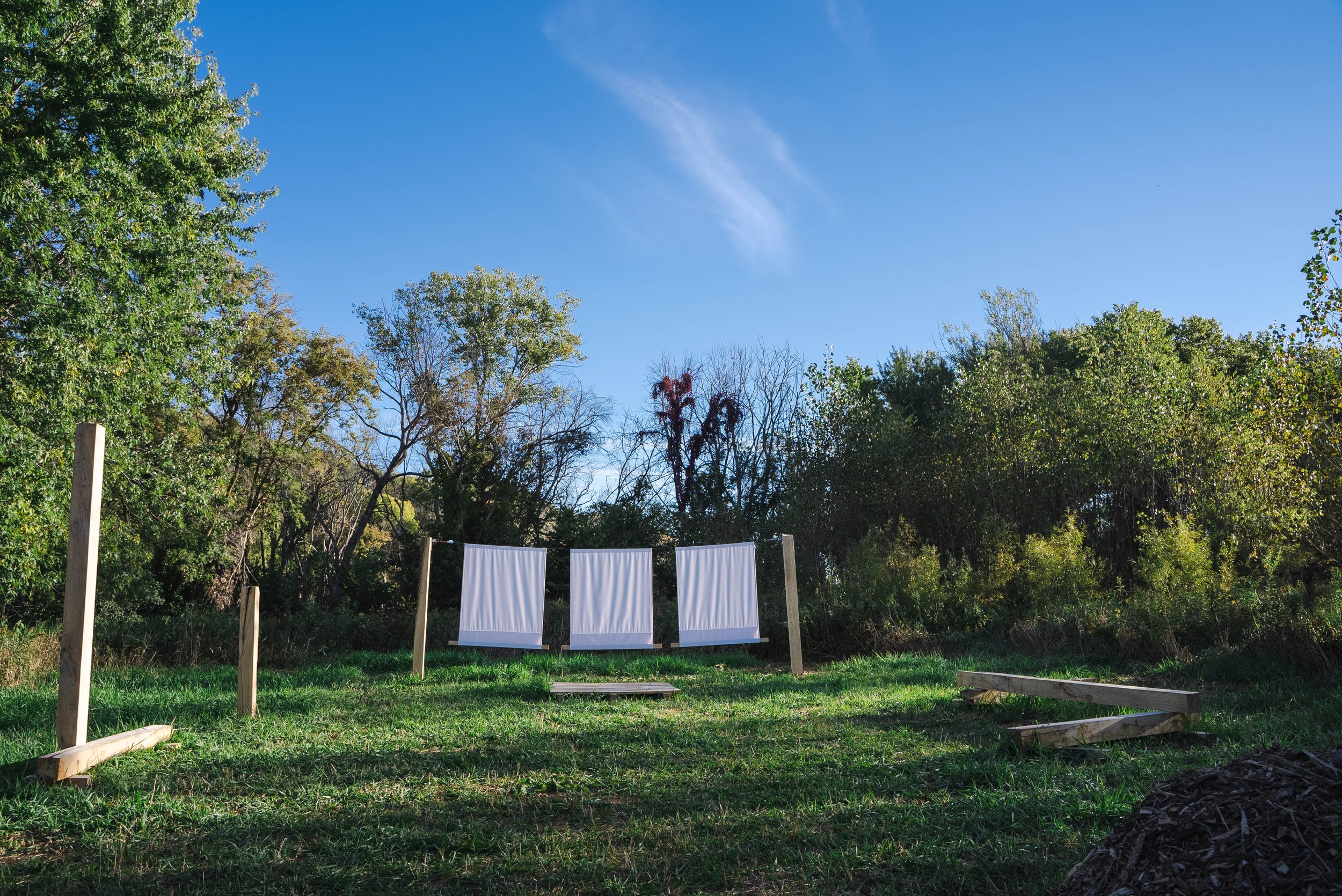

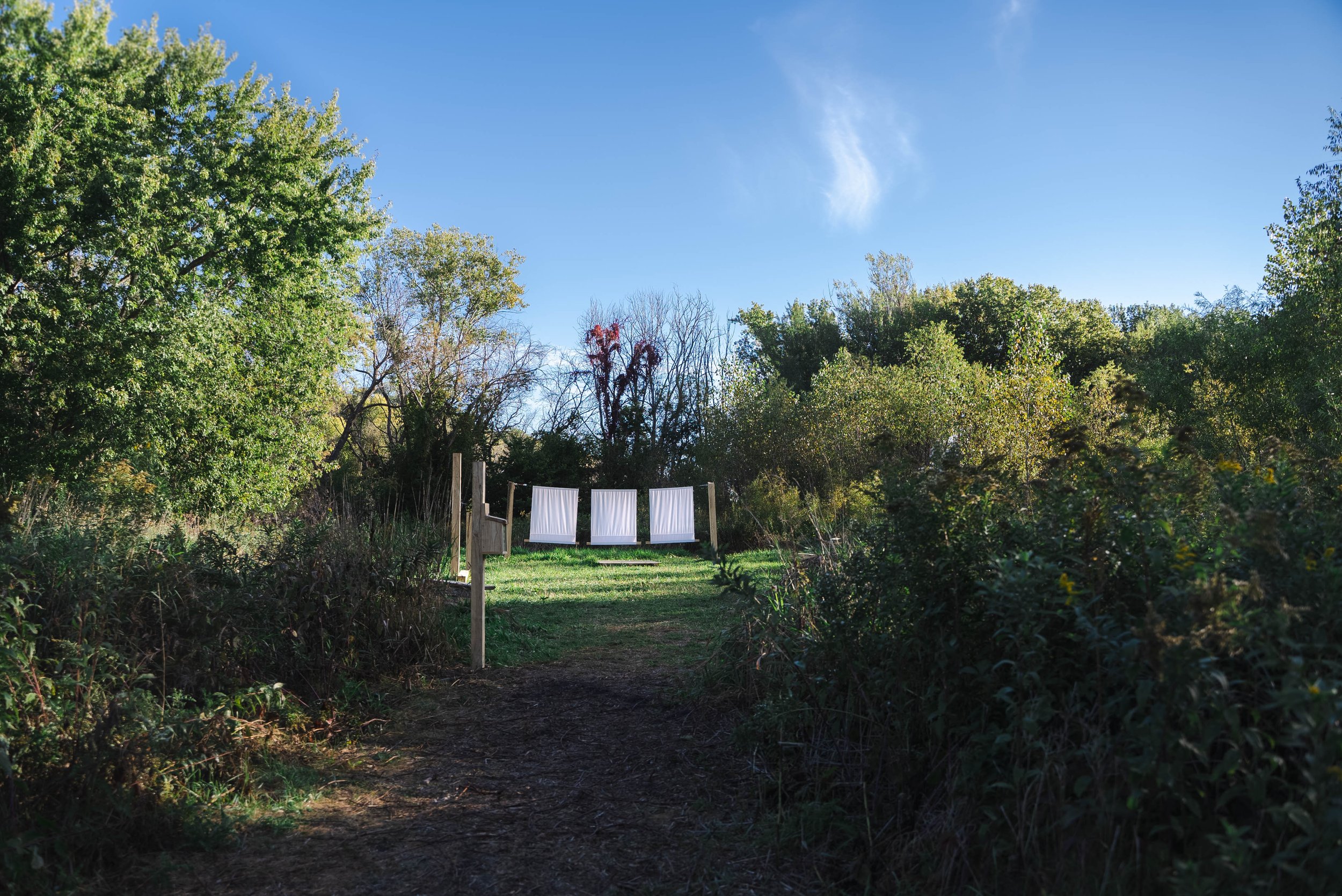
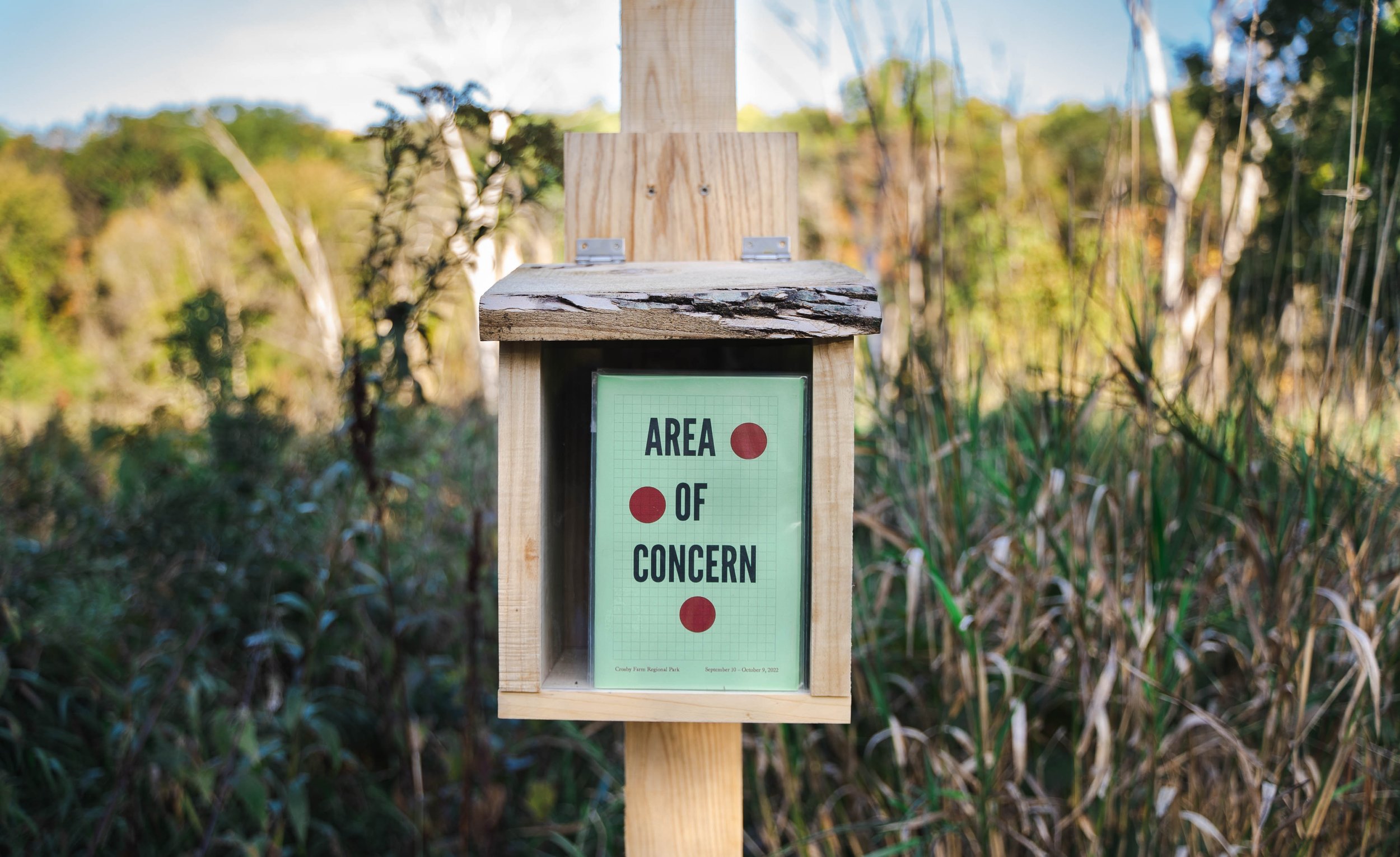
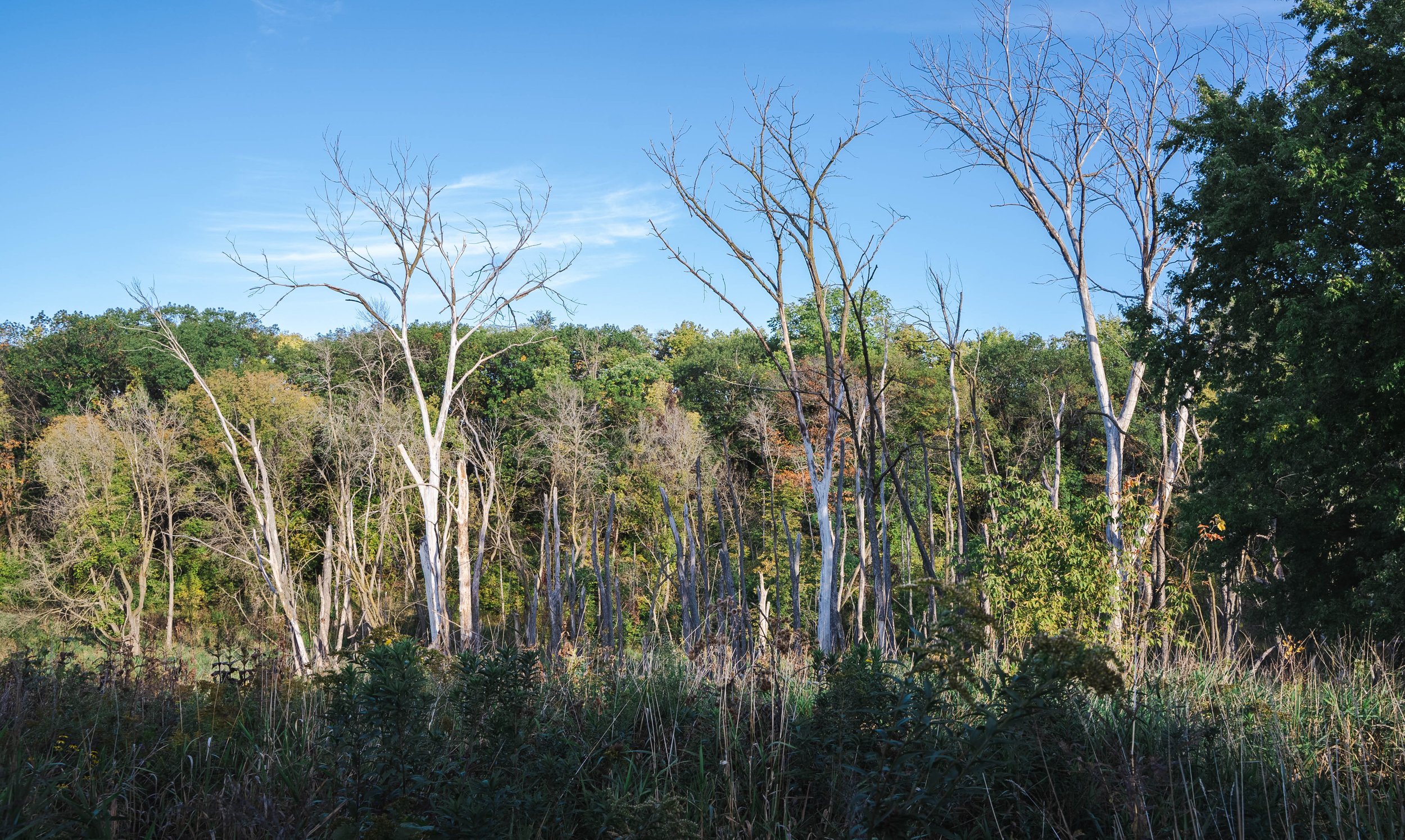


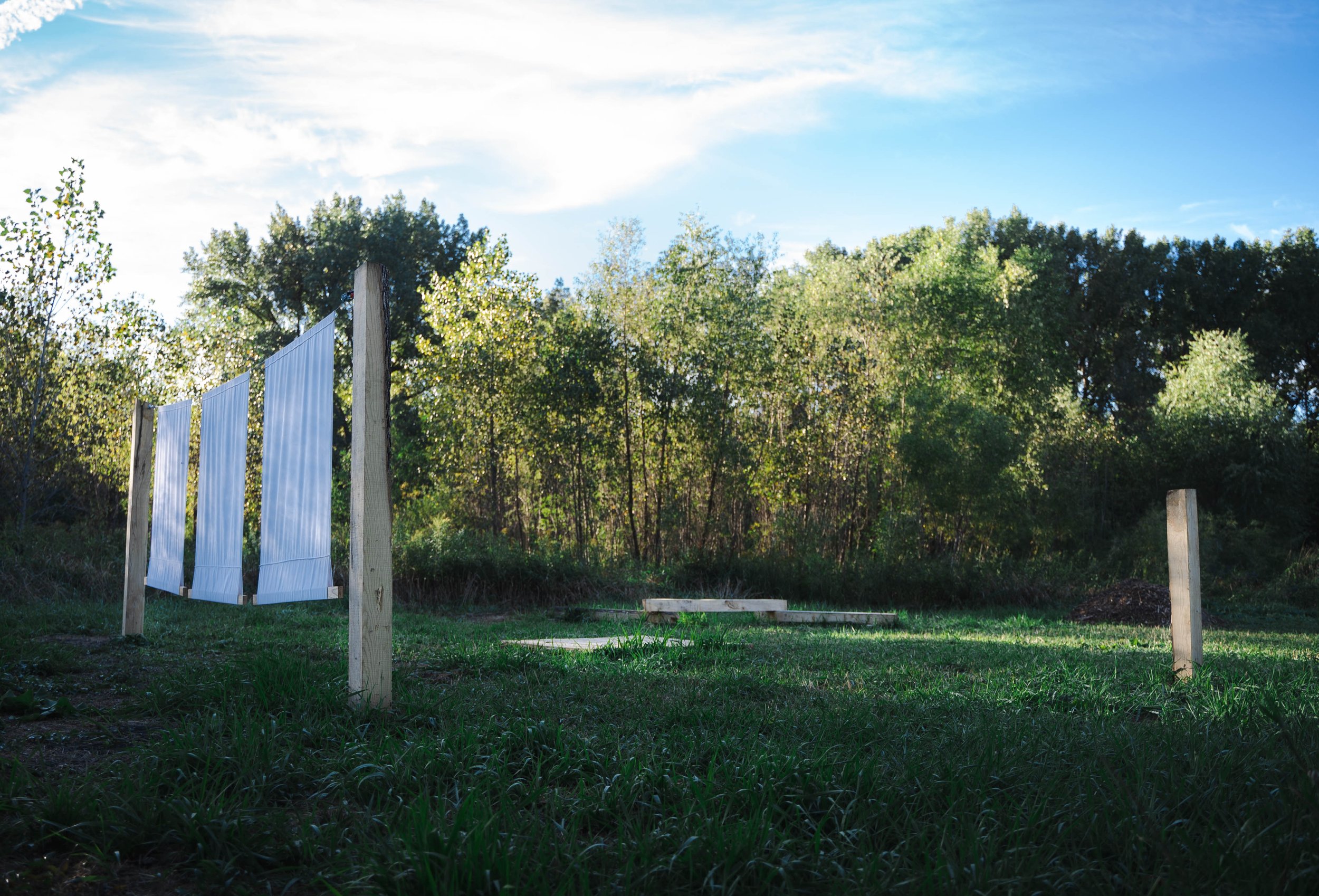
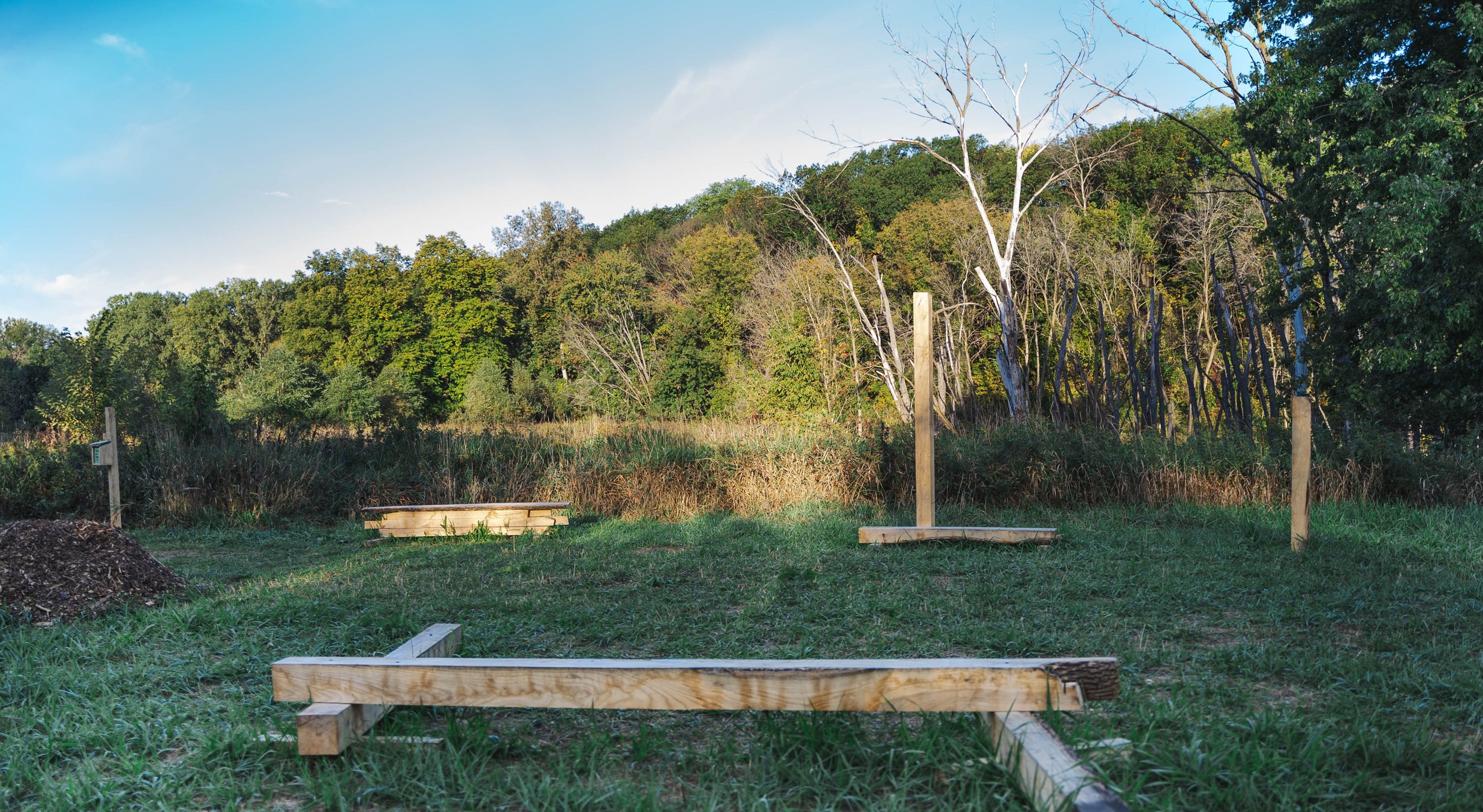



area of concern
Ash lumber milled from a tree infected with emerald ash borer, fabric, ash tree mulch
Completed/Began: 2022
Taking place at Crosby Farm Regional Park, Area of Concern is a public program that includes a site-specific installation, live happenings, and a publication centered around the emerald ash borer—an insect introduced to Minnesota in 2009 that is expected to cause the functional extinction of ash trees.
The program invites artists and audiences to engage with the broader theme of “living through extinction,” expanding perspectives on interrelated issues that the ash borer is tangled up in, including ecological grief and legacies of colonialism, displacement, and exploitation.
The installation is built from the wood of two infected ash trees that were felled at a nearby home in Apple Valley in August 2022. Functioning as both a temporary gathering space and a quiet place for reflection, it offers a site to sit with the forest as it adjusts to the loss of its leading tree. The structure’s plain, exposed heartwood mirrors the bare bark of the trees it foregrounds, evoking something like a memorial while also subtly suggesting an architecture made from the mess of our past.
We are deeply grateful for the community that convened around Area of Concern, and we could not have asked for a more thoughtful group of artists and educators to have embarked on this project with. For lending your knowledges, abilities, and time, thank you April Stone, Hope Flanagan, Kathryn Savage, Kaya Lovestrand, and Su Hwang.
Angie Tillges—the City of St. Paul’s Great River Passage Fellow and a tireless advocate for connecting people and natural places—cleared countless hurdles for this installation to be realized. Sarah Wolf at Back of Beyond Press printed the physical publication on her Riso press.
Melissa Vang, for the beautiful and thoughtful documentation.
A project of this scale would have been impossible without Forecast Public Art’s support, which we received through their Early-Career Artist Project Grant. A very special thanks to Forecast’s Aki Shibata.
This installation is situated on sacred ground of the Dakota people, whose historic and contemporary stewardship of this area allow us to be in relationship to these lands and waters today.

